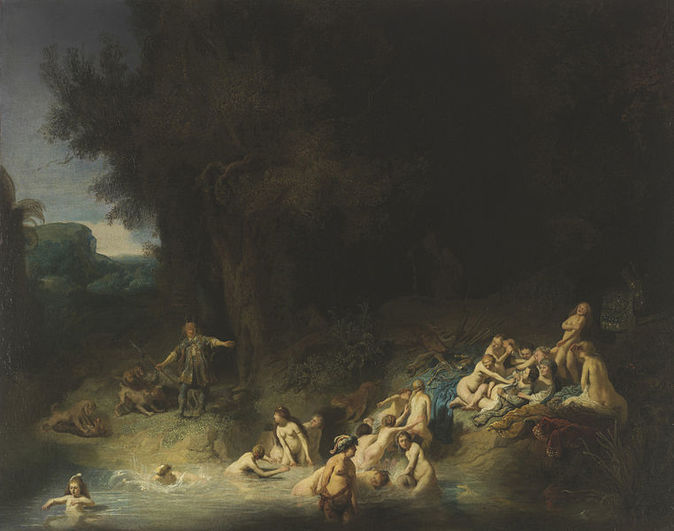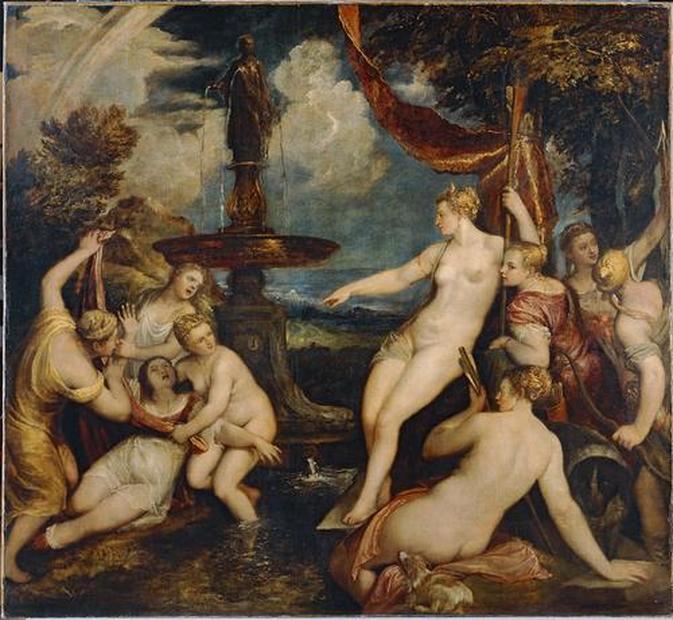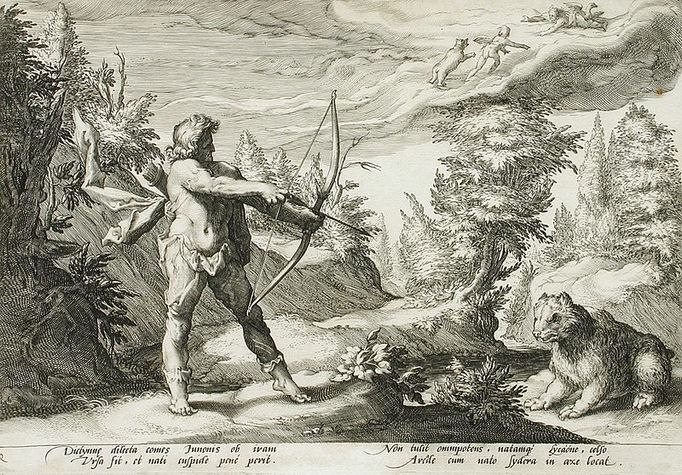CALLISTO IN GREEK MYTHOLOGY
Most of the major constellations of the Northern Hemisphere have a creation story associated with them from Greek mythology. In the case of Ursa Major (the Great Bear) and Ursa Minor (the Little Bear), this creation story is based on the tale of Callisto.
The Story of Callisto Begins
The story of Callisto is one which was told and retold over many hundreds of years, and as a result there are various versions of the myth, but commonly, Callisto was said to be the daughter of the impious King Lycaon and the Naiad Nonacris.
Callisto would come to prominence as part of the retinue of the goddess Artermis, and Callisto would be one of the female huntresses who accompanied the Greek goddess. The followers of Artemis were expected to take a vow of chastity and remain virgins, and this was something that Callisto agreed to. Callisto was also considered to be one of the most devoted of Artemis’ attendants, and therefore one of the goddess’ favourites.
Callisto therefore was more often than not to be found with Artemis, and this brought her into close proximity with other gods, and eventually the roving eye of Zeus fixed upon her.
Callisto would come to prominence as part of the retinue of the goddess Artermis, and Callisto would be one of the female huntresses who accompanied the Greek goddess. The followers of Artemis were expected to take a vow of chastity and remain virgins, and this was something that Callisto agreed to. Callisto was also considered to be one of the most devoted of Artemis’ attendants, and therefore one of the goddess’ favourites.
Callisto therefore was more often than not to be found with Artemis, and this brought her into close proximity with other gods, and eventually the roving eye of Zeus fixed upon her.
Zeus has his way with Callisto
Now, despite being married to Hera, Zeus was not above taking the virtue of a beautiful maiden, and so one day Zeus descended to earth from Mount Olympus. Zeus located Callisto whilst separated from Artemis and the rest of the retinue, and the god approached her; some say Zeus approached in male form, and some say that he disguised himself as Artemis so as not to alarm Callisto.
In either case Zeus was soon next to the beautiful maiden, and before she could protest, the god had taken her virginity and made her pregnant with his child. Callisto and ArtemisCallisto returned to the company of Artemis, but she did not tell Artemis of what had transpired, for she feared the anger of the goddess. As time went by though, it became harder for Callisto to hide the fact that she was pregnant, and indeed, Artemis discovered that her follower was no longer a virgin, when Artemis saw Callisto bathing in one of the rivers of the forest.
Artemis was indeed angry with her follower for breaking her vow of chastity; no matter that it was Artemis’ own father who had made her pregnant. As a result Artemis expelled Callisto from her retinue. |
|
Arcas is Born and Prospers
|
Callisto was alone in the forest, but she successfully gave birth to a baby boy, a boy who would be called Arcas.
It was at this time that Callisto was transformed into a she-bear. This transformation might have been undertaken by Artemis as part of the punishment of Callisto; or it might have been done by Zeus in an attempt to hide his infidelity; or Callisto might have been transformed by Hera as a form of punishment, and as part of a long term plan. |
|
Mother and son could not remain together though, and so Zeus dispatched Hermes to take Arcas to Maia, who raised the son of Callisto. Eventually though, Arcas returned to his homeland, and succeeded his grandfather, Lycaon, to the throne, and the land he ruled became known as Arcadia in his honour.
Arcas Meets his Mother
Whilst Arcas grew up, Callisto roamed the forests where she was once hunted. It was a dangerous existence for a she-bear though, and evading hunting parties took all of her skill.
The wanderings of Callisto would eventually take the bear into the very woods and forests that Arcas himself hunted in; and one day the paths of Callisto and Arcas crossed.
Arcas saw in front of him a magnificent trophy, whilst Callisto saw her son; and so rather than running away from the hunter, Callisto walked towards Arcas hoping to touch her son once again. Arcas now saw an easy kill, and so the king raised his hunting spear, and prepared to run the bear through.
The wanderings of Callisto would eventually take the bear into the very woods and forests that Arcas himself hunted in; and one day the paths of Callisto and Arcas crossed.
Arcas saw in front of him a magnificent trophy, whilst Callisto saw her son; and so rather than running away from the hunter, Callisto walked towards Arcas hoping to touch her son once again. Arcas now saw an easy kill, and so the king raised his hunting spear, and prepared to run the bear through.
Callisto Transformed Again
Zeus saw all of this from his throne on Mount Olympus, and so the god stayed the hand of his son before the killing blow could be delivered. Zeus then transformed Callisto in the constellation known as the Great Bear, Ursa Major, and so that mother and son could be together, Arcas was also transformed into the stars as the constellation Ursa Minor, the Little Bear.
Now, Hera saw the transformation as a constant reminder of the infidelity of her husband, and so as one last punishment, Hera decided to prevent either constellation for drinking water again. Hera therefore convinced Tethys to prevent the stars from every dipping below the horizon into the earth encircling river. This punishment of Hera would last throughout antiquity, until the relative position of the earth and the constellations changed.
Now, Hera saw the transformation as a constant reminder of the infidelity of her husband, and so as one last punishment, Hera decided to prevent either constellation for drinking water again. Hera therefore convinced Tethys to prevent the stars from every dipping below the horizon into the earth encircling river. This punishment of Hera would last throughout antiquity, until the relative position of the earth and the constellations changed.
Colin Quartermain - Callisto - 14th March 2016


